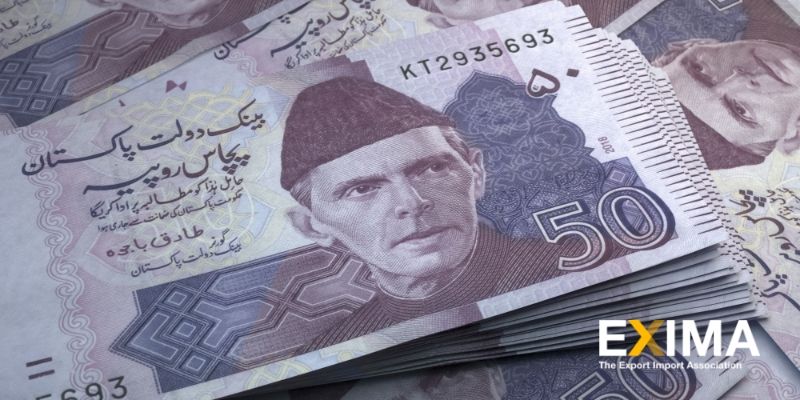Pakistan had some reprieve in its current account. After banning non-essentials, imports fell by over a third in Pakistan. The finance minister believes the import fall will reduce pressure on the Rupee. Pakistan is having trouble keeping its currency stable; the Rupee has lost a quarter of its value this year.
Lower imports from a ban
In June, Pakistan's current account deficit surged by $2.3 billion, primarily due to rising oil prices. After posting a monthly high of $7.7 billion in imports in June, they fell 35 percent to $5 billion the following month. At the end of June, the current account deficit for the year reached $17.4 billion, a significant increase from $2.8 billion the previous year. The government wants to reduce the current account deficit and post surpluses within two years.
Pakistan had to lift the ban as part of preparations for an IMF condition for a $1.18 billion bailout. Although the government will lift the ban, it is considering imposing heavy duties to make it harder to import. They are considering making duties three times their current levels on completely built-up (CBU) commodities like cars, mobile phones, and electronic appliances.
Pakistan's Rupee faces headwinds
Much like every currency in the world, the Rupee has been falling against the US dollar. The US dollar has strengthened due to recession fears and rising Fed rates. As investors worry about global economic performance, they will gravitate towards the US dollar, which is a safe haven asset. Additionally, as the Fed increases interest rates to reign in inflation, US treasuries and bonds become more attractive to investors.
The Pakistani Rupee has recently made some gains against the US dollar based on sentiment rather than fundamentals. Federal Minister for Finance and Revenue Miftah Ismail stated that he would soon step down, and Pakistan will see the return of former finance minister Dar. Dar is known to investors as an advocate for a strong rupee. As finance minister, Miftah Ismail took a number of unpopular moves to comply with IMF requirements, including rolling back power and fuel subsidies.
As it battles currency and current account issues, Pakistan is also dealing with political turmoil and its worst floods in history.
Visit EXIMA News
Come check out our News Page to learn more about current events!









